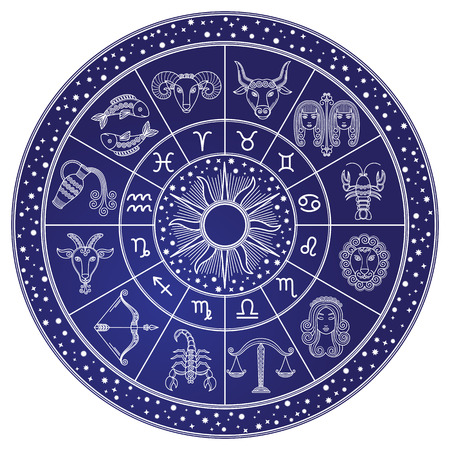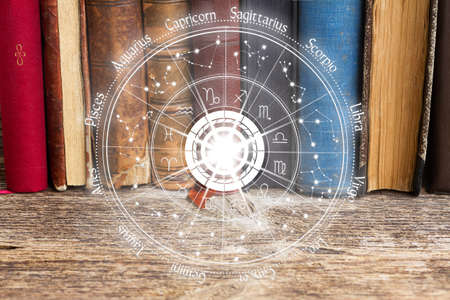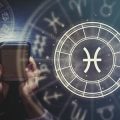Introduction: Love Horoscopes as a Mirror
Within the subtle tapestry of British society, social etiquette is both an art and an unspoken science, guiding the rhythms of conversation, courtship, and connection. It is here that love horoscopes—often dismissed as whimsical or fanciful—reveal themselves as curious mirrors, reflecting not only our romantic aspirations but also the nuanced codes by which Britons engage with one another. Far from mere entertainment, these astrological narratives offer a unique vantage point from which to examine the interplay between personal desires and collective conventions. Through the lens of star signs and cosmic forecasts, we are afforded insights into how individuals navigate the delicate balance of reserve and warmth, wit and sincerity, tradition and modernity that characterise British relationship dynamics. In this exploration, love horoscopes become more than daily amusements; they serve as informal guides to understanding the expectations, rituals, and emotional undercurrents that define romance in Britain today.
Historical Roots of British Social Etiquette
The intricate tapestry of British social etiquette, particularly in the realm of love and courtship, is woven from centuries of tradition. To truly appreciate how modern-day horoscopes are interpreted through the lens of British manners, one must first traverse the grand drawing rooms and refined tea tables of London’s past. The genteel rituals observed in Georgian and Victorian eras laid the foundation for the social codes that still inform romantic interactions today.
The Classical Drawing Room: A Theatre of Manners
In eighteenth and nineteenth-century London, the drawing room was more than a mere parlour; it served as a stage for subtle displays of wit, decorum, and burgeoning affection. Here, the rules were unwritten but rigidly enforced: every gesture, glance, or phrase was laden with meaning. Prospective couples navigated a labyrinth of polite conversation and carefully orchestrated encounters, each step scrutinised by chaperones and family elders.
Tea Tables: Where Romance Met Ritual
Afternoon tea was not merely a culinary affair but a pivotal social ritual. The way one poured tea, selected pastries, or engaged in small talk reflected both breeding and intent. For those attuned to astrological guidance—be they hopeful Leos seeking attention or reserved Capricorns wary of impropriety—these gatherings provided invaluable insight into character and compatibility.
Evolution of Courtship Customs
| Era | Main Setting | Courtship Norms | Astrological Influence |
|---|---|---|---|
| Georgian | Assembly Rooms | Dances & Chaperoned Meetings | Horoscopes consulted by some families for matchmaking |
| Victorian | Drawing Rooms & Tea Tables | Strict etiquette; coded language of fans and flowers | Rising interest in astrology among upper classes |
| Edwardian | Country Houses & Garden Parties | Slight relaxation of formality; emphasis on subtle flirtation | Horoscopes occasionally referenced in society columns |
The enduring influence of these historical practices is evident even today. Whether reading ones daily love horoscope over morning tea or navigating the subtleties of digital courtship, echoes of London’s classical social rituals continue to shape the British approach to romance—balancing destiny with decorum in uniquely charming fashion.

3. Astrological Archetypes and British Personality Traits
When examining British social etiquette through the prism of love horoscopes, it is illuminating to explore how astrological archetypes intersect with quintessentially British personality traits. Each zodiac sign offers a distinct set of characteristics, yet when filtered through the lens of British culture, these celestial blueprints often take on unique nuances or even clash with established national stereotypes.
Aries: The Reserved Pioneer?
Traditionally, Aries is known for boldness and initiative, yet in the UK, this fiery energy is frequently tempered by a cultural preference for restraint and understatement. The archetypal British Aries may express leadership quietly, masking ambition beneath politeness and dry wit—assertive, but seldom brash in matters of the heart.
Taurus: Stubborn or Steadfast?
Taurus aligns well with the British reputation for steadfastness and reliability. However, where global Taureans might be overtly sensual and pleasure-seeking, their British counterparts are likely to display affection through subtle gestures—a cup of tea brewed just right or a steady hand in times of trouble. The legendary “stiff upper lip” finds resonance here.
Gemini: Conversational Dexterity Meets Polite Reserve
The Gemini’s sociability dovetails with Britain’s love of clever conversation, yet the classic Gemini restlessness can seem at odds with traditions of decorum. In romantic contexts, the British Gemini might flirt with wordplay and intellectual banter rather than flamboyant declarations.
Cancer: Emotional Depth Behind Composure
Cancerian sensitivity often hides beneath an exterior of composure in British society. Sentiment is expressed through loyalty and quiet acts of care rather than emotional outpourings—aligning with the national tendency toward emotional reserve.
Leo: Grandeur in Subtlety
The Leo’s need for recognition can appear subdued in the British context; self-promotion is cloaked in humour or humility. Romantic gestures may be grand in intention but executed with elegant understatement—a bouquet delivered without fanfare, or an anniversary marked by shared memories rather than spectacle.
Virgo: Precision and Politeness
Virgos’ analytical nature pairs harmoniously with British attention to etiquette and detail. In love, this manifests as thoughtful planning—never missing a birthday card or dinner reservation—embodying both zodiacal diligence and cultural propriety.
Balancing Celestial Influence and Cultural Identity
Across all signs, the interplay between astrological archetype and British stereotype creates a tapestry of behaviour that is both universal and uniquely local. Whether aligning comfortably or clashing gently, these traits shape not only individual romances but also broader patterns of social interaction—demonstrating that while the stars may guide us, it is culture that writes the script.
4. Politeness and Subtlety: Venus, Mercury, and the British Art of Flirtation
When contemplating the gentle choreography of British romantic interaction, one must consider both the celestial influence and the time-honoured codes of etiquette. The interplay between Venus, harbinger of affection, and Mercury, patron of communication, subtly infuses the British approach to flirtation—a dance performed with understated grace, wit, and decorum. Unlike more demonstrative cultures, British flirtation is a delicate art form, relying heavily on indirect cues and nuanced exchanges. This section explores how astrological archetypes manifest in these social rituals, reflecting both planetary symbolism and the unique tenor of British society.
The Celestial Blueprint for Courtly Conduct
In astrology, Venus governs love’s allure and the aesthetics of attraction, while Mercury presides over verbal dexterity and intellectual rapport. These planets together create a blueprint for romantic engagement that aligns closely with British customs. The emphasis here is not on grand gestures but rather on clever repartee, self-deprecating humour, and a penchant for ambiguity—qualities mirrored in the British preference for subtlety over overt passion.
Table 1: Astrological Influence vs. British Flirtation Traits
| Astrological Influence | British Flirtation Trait | Example in Social Etiquette |
|---|---|---|
| Venus: Charm & Grace | Polite Compliments | Saying “You have such a lovely way about you” instead of direct declarations |
| Mercury: Wit & Communication | Banter and Wordplay | Engaging in playful teasing or ironic remarks during conversation |
| Venus-Mercury Synergy | Understatement & Suggestion | Dropping hints or using double entendre rather than explicit invitations |
The Understated Rituals of Romance
A quintessential feature of British flirtation lies in its restraint. Directness may be considered gauche; instead, signals are often encoded within light sarcasm or gentle mockery—a form of communication that aligns with Mercury’s agility and Venus’s subtle magnetism. For example, exchanging knowing glances across a crowded room or offering to make someone a cup of tea can convey interest as powerfully as more obvious overtures elsewhere.
The Etiquette of Suggestion Over Declaration
This preference for suggestion over declaration is not merely a matter of personal taste but reflects deeper cultural values. In Britain, maintaining composure and avoiding embarrassment—one’s own or another’s—is paramount. Thus, even when affection blooms under fortunate stars, it is expressed through a veil of modesty and tact. Whether Mercury is in retrograde or Venus shines brightly, the British tradition favours an approach where what remains unsaid often carries the most meaning.
5. Modern Dating and Social Codes in the UK
In the contemporary British dating landscape, tradition and technology often converge in an intricate dance, reflective of both age-old etiquette and the digital age’s innovations. The British penchant for understatement and subtlety persists even as apps and online platforms transform how couples meet and interact. Love horoscopes, once perused discreetly in daily newspapers or whispered about among friends, now play a novel role in this evolving social theatre—guiding choices and sparking conversations in the virtual realm as much as at a local pub.
The Fusion of Old-World Charm and Digital Dynamics
Modern Britons frequently find themselves balancing ancestral codes of conduct—politeness, measured courtship, and emotional reserve—with the immediacy demanded by swiping right or replying to a message within minutes. Here, astrology provides a curious continuity; whether one is a pragmatic Capricorn or an impulsive Aries, horoscopes offer reassurance and narrative structure amidst the unpredictability of dating apps. It is not uncommon to see profiles reference star signs, injecting a playful yet meaningful layer into first impressions.
Astrological Guidance Amidst Social Nuance
While British etiquette traditionally values discretion in matters of the heart, horoscopes have emerged as an acceptable conversational icebreaker. Phrases like “What’s your sign?”—once seen as slightly gauche—are now met with a knowing smile or a witty retort. This interplay reflects a uniquely British sensibility: embracing trends while maintaining a veneer of classic restraint. Astrological compatibility becomes another filter through which potential matches are evaluated, alongside wit, charm, and shared interests.
Navigating Love: From Tea Rooms to Text Messages
Whether arranging to meet for coffee in a cosy café or exchanging emojis late into the night, today’s Britons draw from both their cultural heritage and modern influences. The horoscope acts as both compass and conversation starter, helping individuals negotiate unspoken rules—when to text back, how to express interest without appearing forward, or how to interpret mixed signals—all while navigating the tides of fate that astrology so elegantly alludes to.
6. Conclusion: Stars, Society, and the British Way of Love
As we reflect upon the interplay between astrological guidance and the enduring fabric of British social etiquette, it becomes clear that both forces offer a unique lens through which to understand romance in Britain. On the one hand, the stars—timeless and impartial—invite us to seek meaning in cosmic patterns, suggesting that our hearts’ desires are written in the heavens. On the other, the deeply rooted customs of British society, with its emphasis on politeness, understatement, and gentle courtship, provide a terrestrial framework for navigating love’s delicate dance.
Drawing connections between these two realms reveals a fascinating synthesis. Astrological insights may embolden some to take risks or open new chapters in their romantic lives; yet, such celestial encouragement is invariably filtered through the quintessentially British manner of self-restraint and decorum. The subtle art of reading signals—whether from the stars above or from across a candlelit table—remains central to British romance, where ambiguity often reigns and directness is carefully measured.
Ultimately, while horoscopes can offer guidance and even comfort, they do not override the nuanced codes of British courtship. Instead, they serve as conversation starters at dinner parties in Hampstead or provide a playful nudge in a Soho café, enriching rather than defining the complex rituals of attraction. The stars may illuminate possibilities, but it is within the uniquely British context—where tradition meets modernity—that love finds its true expression.
The question remains: can astrology truly unravel the intricacies of British romance? Perhaps not entirely. Yet, when viewed as a companion to cultural norms rather than an oracle of destiny, it offers both charm and perspective. In this way, British love stories continue to be written—not just by fate or fortune, but by the enduring etiquette that has shaped generations beneath these storied skies.


